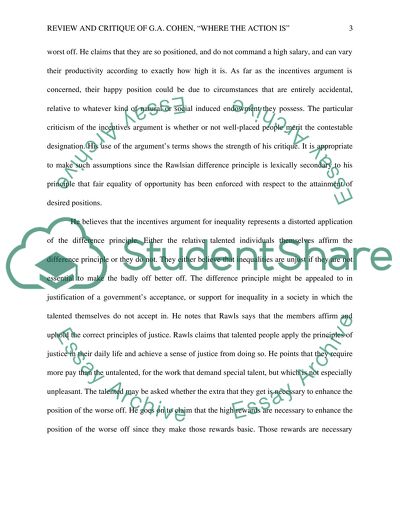Cite this document
(“Review and critique of G.A. Cohen, Where the Action Is , Philosophy Book Report/”, n.d.)
Review and critique of G.A. Cohen, Where the Action Is , Philosophy Book Report/. Retrieved from https://studentshare.org/social-science/1690026-review-and-critique-of-ga-cohen-where-the-action-is-philosophy-and-public-affairs-1997
Review and critique of G.A. Cohen, Where the Action Is , Philosophy Book Report/. Retrieved from https://studentshare.org/social-science/1690026-review-and-critique-of-ga-cohen-where-the-action-is-philosophy-and-public-affairs-1997
(Review and Critique of G.A. Cohen, Where the Action Is , Philosophy Book Report/)
Review and Critique of G.A. Cohen, Where the Action Is , Philosophy Book Report/. https://studentshare.org/social-science/1690026-review-and-critique-of-ga-cohen-where-the-action-is-philosophy-and-public-affairs-1997.
Review and Critique of G.A. Cohen, Where the Action Is , Philosophy Book Report/. https://studentshare.org/social-science/1690026-review-and-critique-of-ga-cohen-where-the-action-is-philosophy-and-public-affairs-1997.
“Review and Critique of G.A. Cohen, Where the Action Is , Philosophy Book Report/”, n.d. https://studentshare.org/social-science/1690026-review-and-critique-of-ga-cohen-where-the-action-is-philosophy-and-public-affairs-1997.


